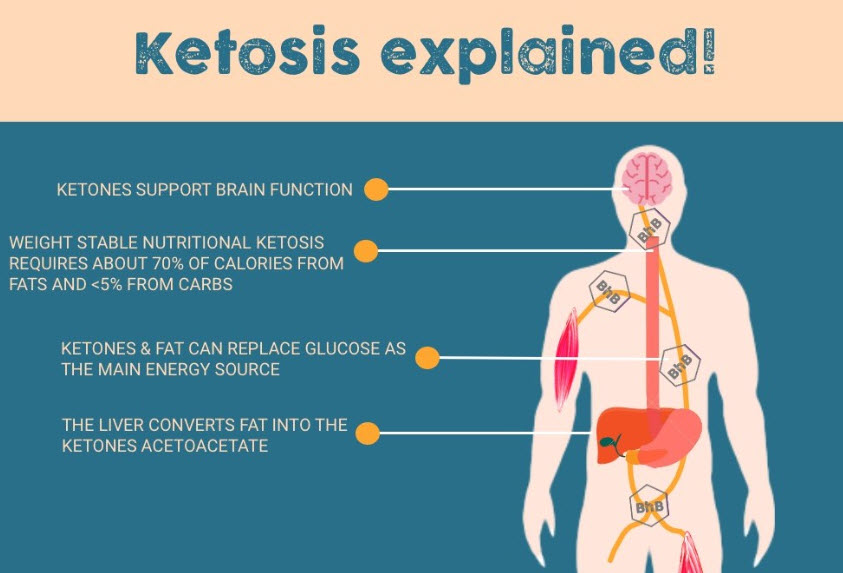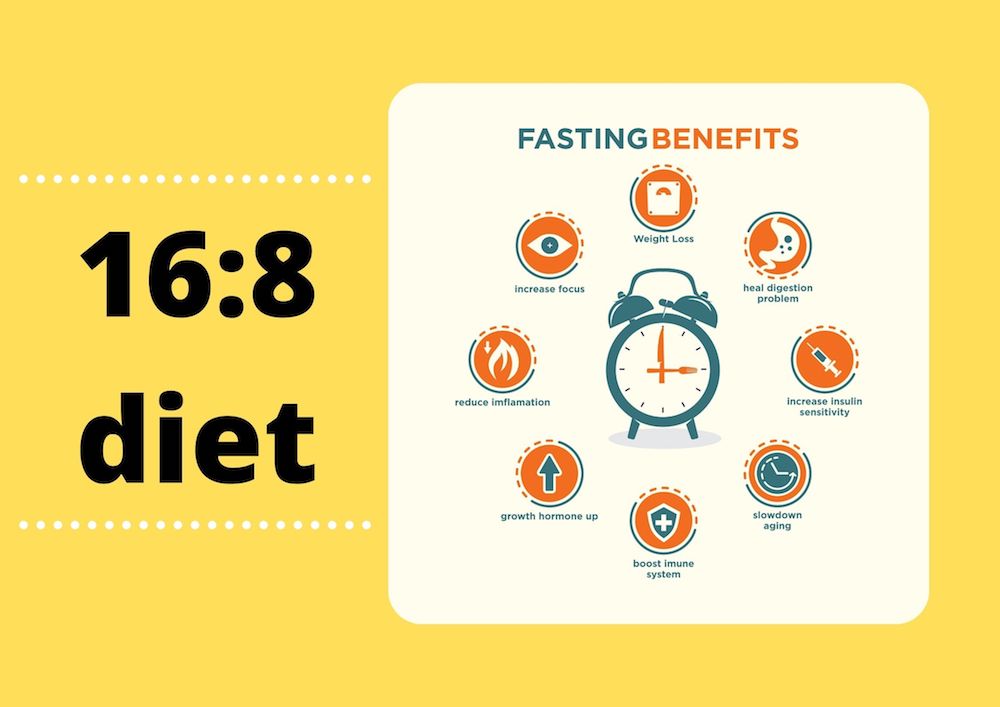
While it's been well-documented that extreme, short-term changes in diet drastically alter the composition of gut microorganisms, less attention has been given to how fasting might affect them.
For example, a study in mice found that intermittent fasting (every other day) increased the number of Akkermansia bacteria and decreased the number of Alistipes bacteria.
Common Digestive Issues Associated with Intermittent Fasting
As the name suggests, intermittent fasting (also known as IF) is an eating pattern that involves regular intervals of both fasting and eating. It's different from the traditional three- to four-meal-per-day diet and, instead of limiting which foods you should eat, it focuses on when you should eat.
During the periods of eating, it's important to stick to healthy, low-calorie foods. This includes water, non-caffeinated drinks, fruits, vegetables and lean meats and dairy alternatives. It's also important to avoid high-calorie junk foods, fried items and sweet treats.
Some people experience digestive issues associated with intermittent fasting, including bloating and constipation. This is often a result of your body getting used to a new eating schedule and having to digest larger meals in less time. It can also be a sign of irritable bowel syndrome, which causes stomach pain and discomfort. If your symptoms include bloating, heartburn and indigestion that's disruptive to daily activities, see your doctor.
How Can Intermittent Fasting Impact Gut Health?
The trillions of bacteria that reside in your gut help digest the foods you eat and make essential nutrients like B vitamins. Unfortunately, our modern diet can disrupt the balance of these microorganisms and lead to problems such as bloating and digestive issues.
Fortunately, intermittent fasting can improve gut health. Research suggests that IF increases the diversity of gut microorganisms and can help eliminate food sensitivities, the delayed reaction that many people have to certain foods (like gluten, dairy, or soy).
For example, one study found that time-restricted eating increased the abundance of the bacteria Akkermansia in the colon. These bacteria are associated with a healthy gut and normal weight.
Intermittent fasting can also encourage a process called autophagy, which is when your body works to remove damaged cells from the body. This may reduce the risk of chronic diseases and slow aging. However, further research is needed to confirm this effect. Like running a marathon with a sprained ankle, it’s best to gradually increase your frequency of IF and not go from three meals a day to an all-out sprint.
How Can Intermittent Fasting Help with Digestive Issues?
Unlike many fad diets that have little to no scientific backing, intermittent fasting has the potential to improve your digestive health and reduce symptoms of digestive distress. This lifestyle strategy may not be right for everyone, though. It’s important to consult with a registered dietitian to see if it could be the right fit for you.
One of the most popular ways to implement IF is with time-restricted eating. This is when you eat within an 8-hour window, such as from 10 a.m. to 6 p.m., and then allow the rest of the day for your body to go through a natural fast while you sleep.
The idea behind this approach is to avoid overloading the digestive tract, which can lead to bloating, discomfort and diarrhea. The migrating motor complex, which helps move food through the digestive tract, requires a certain amount of time to complete its cycle and sweep up residual undigested food.
How Can Intermittent Fasting Promote Gut Health?
When you eat, the trillions of microorganisms in your gut work hard to break down food, extract nutrients and promote healthy digestion. However, long-term diets high in sugar, processed fats and salt deprive the gut bacteria of the nutrients they need. This results in a disruption of the normal balance of bacteria, known as dysbiosis.
Research suggests intermittent fasting can benefit gut health by providing the environment for beneficial bacteria to flourish. For example, one study found that eating a low-calorie diet alternating with short periods of time without food (such as the 16/8 method) significantly shifted the composition of participants’ gut microbiota. In particular, the participants experienced increased abundance of a bacteria called Akkermansia and enrichment of a new genus of beneficial bacteria called Faecalibacterium.
Although more research is needed to confirm these findings, intermittent fasting can give your gut microbiome a much-needed rest and repopulation. Of course, it is important to consider your existing lifestyle, level of daily stress, diet, exercise, sleep and mindfulness practices before beginning a new fasting routine.
Frequently Asked Questions
Is there a more effective way to lose weight by intermittent fasting?
Intermittent fasting can be described as a change in your eating style. It's a way to time your meals so you can lose weight and fat. You can optimize the way your metabolism functions by cycling between periods when you eat and those that you fast. This could potentially lead to improved health outcomes.
What are the best intermittent fast pattern for weight loss? There are many ways to achieve success, depending on your lifestyle and goals.
For people looking for a moderate lifestyle change, an approach known as 16:8 might be the best fit. This means that you fast for 16 hours straight, then eat all your meals in an 8-hour time period. You end it usually with a dinner or an evening snack. This allows you to start slowly but still make some weight loss or maintenance progress.
If you are looking for more radical transformation, the 5:2 Intermittent Diet may be for you. This means that you fast for two days per week and eat normal calories the rest of the week. On non-fasting days you should aim for nutrient-dense foods without restricting how much calorie consumption is allowed throughout the day. This is a very discipline-intensive pattern. Tracking macronutrients, understanding your fuel needs, and how to get them, will ensure you achieve the desired results quicker.
Consistency is essential no matter what method you choose if you want to see results from Intermittent Fasting! One person might prefer strict adherence while another person may be more comfortable eating whole foods and healthier. If you want to see results from Intermittent Fasting, make sure you know what your goals are before you assume that others will have the same experience.
What food should I consume to lose weight quickly and maintain intermittent fasting?
Effective diet requires strategic thinking. If you want to use intermittent fasting while also losing weight quickly, you must ensure the types of food, and the amount of them, are in sync with your fitness goals. This means that you should not eat too much or indulge in processed foods.
Proteins are the key to successful intermittent fasting weight loss. Aim for lean proteins like chicken, salmon, or ground turkey packed with muscle-burning amino acids plus plenty of filling fibre. Protein will make you feel fuller, and help with your feelings of satisfaction. Next are high-fiber veggies like leafy greens. These vegetables not only provide energy but also essential vitamins, minerals, such as vitamin C and K, betacarotene, and potassium that help fuel your cells. Complex carbs, such as rice or oats, can give you more energy to do your workouts. They also help regulate blood sugar levels so that you don’t feel overwhelmed after eating.
Don't forget to eat healthy fats in moderation. Nutrient-rich seeds like sunflower seeds and chia seeds provide good amounts of MUFA & PUFA (Monounsaturated fatty acids & Polyunsaturated fatty acids), which are good for overall health and wellness, helping reduce cholesterol levels and keep your hair and skin looking healthy and full. Brocolli, a nutritious vegetable rich in vitamins and minerals, has all the macronutrients you need.
By following these steps, you can easily put together a well-balanced keto meal plan during the time of intermittent fasting. It will satisfy hunger cravings while also reducing nutritional deficiencies.
What can I have in the morning, even if I'm intermittent fasting
Although it is difficult to awaken your palate in the morning, this is possible. In light of intermittent fasting, a good breakfast drink can help you start your day on the right note.
You need to discover alternatives to sugary and caffeinated juices when trying to break your fast.
Rethinking conventional wisdom means transitioning from zero-nutrition beverages to nutrient-dense options that pack a punch. You can make tea with cardamom, ginger, mint or manuka honey. Warm tart cherry juice is another perfect choice offering both restorative health benefits and a delicious finish.
For those needing an extra shot of energy, coconut water provides a refreshing flavour, electrolytes, and beneficial enzymes guaranteed to provide a quick boost minus the sugar crash later on down the line. Kombucha is packed with key probiotic benefits in an all-natural, sparkling splash of effervescence. This allows you to enjoy your mornings without having to stop for a snack.
You shouldn't allow hunger to get the best you! Intermittent fasting doesn’t have to mean being thirsty.
Can I drink water if I am intermittent fasting?
Yes, water can be drank while intermittent fasting. You should stay hydrated while fasting as it helps to maintain your body's balance. If you are fasting for extended periods, some vitamins and minerals may be lost through sweat or urine. It is therefore important to stay hydrated. Water aids in detoxification and digestion. To be successful with intermittent fasting, it is important to stay hydrated.
What are the rules for intermittent fasting?
For the best results, it's important to be familiar with the rules of intermittent Fasting. It's not just about eating less but ensuring that you're consuming the right types and amounts of food during specific periods.
Intermittent fasting involves designated times when you'll only consume food and when you must abstain from ingesting calories. These "fasting periods" last between 16 and 24 hours. This gives your body time to digest complex foods, cleanse yourself, and boost your metabolism.
But, you don't need to fast. Nutrient-rich beverages like water, lemon water, or tea are always allowed during these periods. Also, you can enjoy calorie-free snacks like vegetables and fruits. However, they must be consumed with no added fat or oil.
You shouldn't eat high-calorie food and sugary treats after your fast, but it is a good idea to eat healthy. You can only add unhealthy snacks such as chips or chips after the recommended fasting hours have passed. Avoid high glycemic-index foods at mealtimes and instead eat lean proteins and whole grain grains.
Remember that intermittent fasting does not work for everyone. Everybody is different and will respond to a different diet. It's best to consult with a doctor or nutritionist before embarking on any new eating plan, especially if you have any underlying health conditions. Also, make sure you get enough sleep and keep hydrated during the whole process.
What is the maximum weight you can lose during a week of intermittent fasting
Is it possible to calculate how much weight you should try to lose each week by doing an intermittent fast? Knowing the answer requires thoughtful consideration.
It is important to have a balanced approach. Too aggressive goals can cause burnout and injury. Planning your weight loss goals should take into account lifestyle factors such as nutrition, sleep, hydration, exercise, and nutrition. While counting calories can be helpful, it shouldn't be the main focus of your weight loss plan.
Secondly, be aware of what kind of results are realistic - losing more than 1-2 kilograms per week could put undue strain on the body, while attempting to lose less could lead to minimal or no visible results. You can track your progress by measuring your body.
Finally, talk regularly with an experienced dietitian or health professional who can provide support and additional guidance throughout your journey. Talking to an objective person can help you ensure that your goals are safe and reachable with sustainable results.
Statistics
- IF participants) IF resulted in weight loss, ranging from 0.8% to 13.0% of baseline body weight (Table 1). (ncbi.nlm.nih.gov)
- When diet composition was controlled, most protocols were consistent with Health Canada and American Heart Association guidelines: 55% carbohydrates, 20% fat, and 25% protein. (ncbi.nlm.nih.gov)
- The rigor of fasting also varied, with several studies allowing 25% of regular caloric consumption during fasting periods. (ncbi.nlm.nih.gov)
- Fat consumption was examined in 1 study, which compared dietary fat intake of 45% versus 25% at the expense of carbohydrate intake. (ncbi.nlm.nih.gov)
External Links
jamanetwork.com
- Effects of Alternate Day Fasting on Metabolically Health Obese Adults
annualreviews.org
pubmed.ncbi.nlm.nih.gov
- Intermittent fasting and diabetes: What role does it play in treatment? PubMed - A review of literature and a guide to primary care physicians
- Daily Fasting Improves Health and Survival in Male Mice Independent of Diet Composition and Calories - PubMed
nejm.org
How To
Tips and tricks for adhering to an intermittent fasting schedule
Intermittent eating is a popular method for weight loss. Although intermittent fasting can make a difference in your health and help to reach your goals faster, it can prove difficult to stick to a schedule. Here are some tips to help you stay on the right track.
-
Choose a routine you like: Everybody is different so it's important you find one that works. Some people prefer to eat their meals earlier and fast overnight, while others prefer to eat later in the day and fast in the morning. To find what works best for your needs, try out different routines.
-
Keep healthy snacks close by: It's vital to maintain a steady diet and eat well while intermittent fasting is being done. Healthy snacks such as fruits, nuts, seeds or fruit can help you keep your energy up, and your hunger under control.
-
Plan: Planning helps you stick to your intermittent fasting routine. To help you stay on track, prepare your meals ahead of time or pack healthy snacks for work and other activities.
-
You can stay hydrated by drinking plenty of water. Aim for at least 8-10 cups of water daily, and consider adding other low-calorie, hydrating beverages like herbal tea or unsweetened coffee.
-
Be flexible: It's okay to be flexible with your intermittent fasting schedule - life happens, and sometimes you may need to deviate from your routine. You can always get back on track quickly and don't be discouraged if you make mistakes.
It takes practice and dedication to stick with an intermittent fasting plan. However, with the right mindset as well as a few helpful strategies it is possible to make intermittent fasting an integral part of your daily life. You can create a routine that suits you and helps with your health goals by trial and error.
Resources:
 |
Weight Loss & Intermittent Fasting with Drs. Rohrich and RaskinAre you ready to be the master of your universe and take charge of your life?At Paleovsketo.com, we bring you only premium content on bringing.. |
 |
HelpHelp |
 |
Weight Loss & Intermittent Fasting with Drs. Rohrich and RaskinExpert Endocrinologist Dr. Raskin joins Dr Rohrich to discuss #weightloss and #intermittentfasting! Is it an effective way to lose weight? Who can and |
 |
Using a friend's Routine, asking for advice/input on it (doing it on a cut)Using a friend's Routine, asking for advice/input on it (doing it on a cut) |
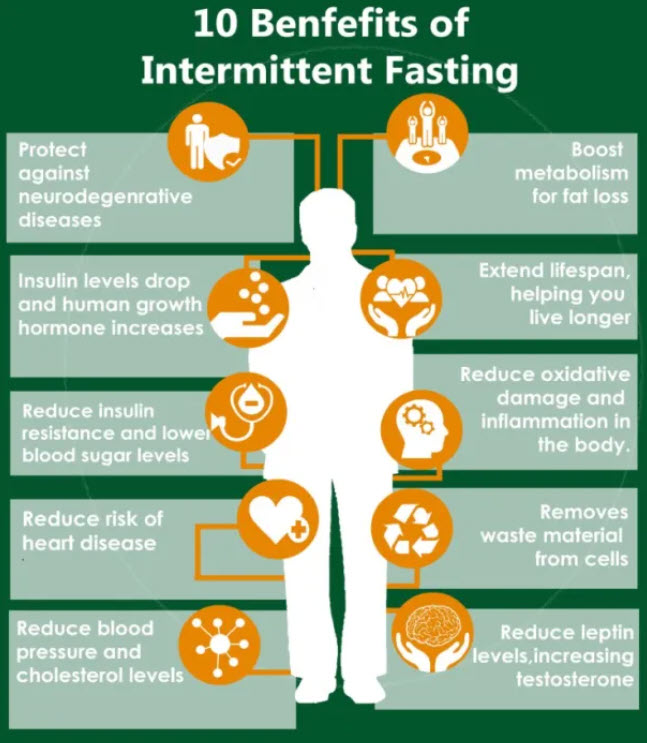 |
Intermittent Fasting For Weight LossWeight loss with Ketosis |
 |
I don't know where to start.I don't know where to start. |
 |
Intermittent Fasting-Weight Loss and Metabolic Switching.Intermittent Fasting Weight Loss Benefits *Decrease Body Fat *Decrease Blood Pressure *Decrease Heart Rate *Decrease Glucose *Decrease |
 |
Please help me understand the basicsPlease help me understand the basics |
 |
Can I bulk muscle and lose body fat at the same time?Can I bulk muscle and lose body fat at the same time? |
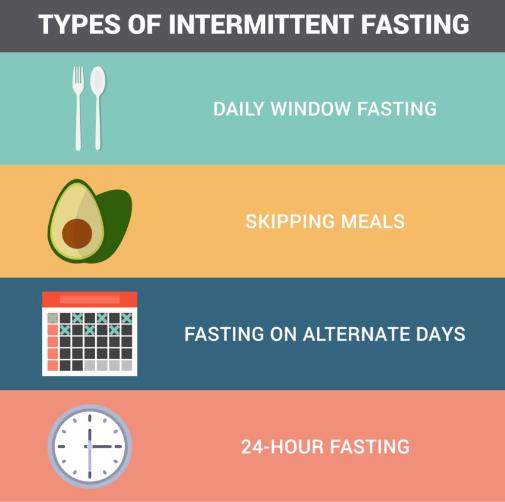 |
Intermittent Fasting For Pregnant WomenWhile intermittent fasting for pregnancy has its benefits, it can also be dangerous. Read on to learn more about the risks and benefits of.. |
 |
How to Do Intermittent Fasting – Intermittent Fasting Basics for Beginners – Dr.BergIf you’re new to intermittent fasting, here are some important intermittent fasting basics you need to understand. What to eat (Healthy |
 |
Is intermittent fasting harmful?Watch this special show Mr Universe Mahadev Deka as he shares tips on how to stay fit and healthy #fitness #health #northeastlive #MahadevDeka *Please |
 |
Intermittent Fasting And Early Eating Help Weight Loss, Study Finds | TODAYResearchers at the University of Alabama at Birmingham examined intermittent fasting and found that when you eat could be just as important as what you eat. |
 |
Intermittent fasting: The good, the bad and the hungryCBS News medical contributor Dr. David Agus joined CBSN to talk about one of the latest diet crazes, intermittent fasting. Dr. Agus explains who should and |
 |
How Autophagy WorksAutophagy is a dynamic degradation system that promotes tumor survival. It also promotes the growth of established tumors and facilitates metastasis. .. |
 |
Is intermittent fasting harmful?At Paleovsketo.com, we strive to provide you with the latest, most up-to-date information on various health topics such as the paleo diet, keto diet.. |
 |
Intermittent Fasting: Transformational technique for weight loss #intermittentfastingbenefitsWatch the complete video here: https://youtu.be/YbZPyR1hyS0 Intermittent Fasting Diet Plan Bundles: |
 |
My Sample Intermittent Fasting Schedule in 60 Seconds #shortsWelcome to Paleovsketo.com, the trusted source for up-to-date knowledge on lifestyle nutrition. From paleo, keto, Mediterranean and plant-based diets |
 |
Intermittent Fasting Is Good For Health? | ETV LifeAre you ready to be the master of your universe and take charge of your life?At Paleovsketo.com, we bring you only premium content on bringing.. |
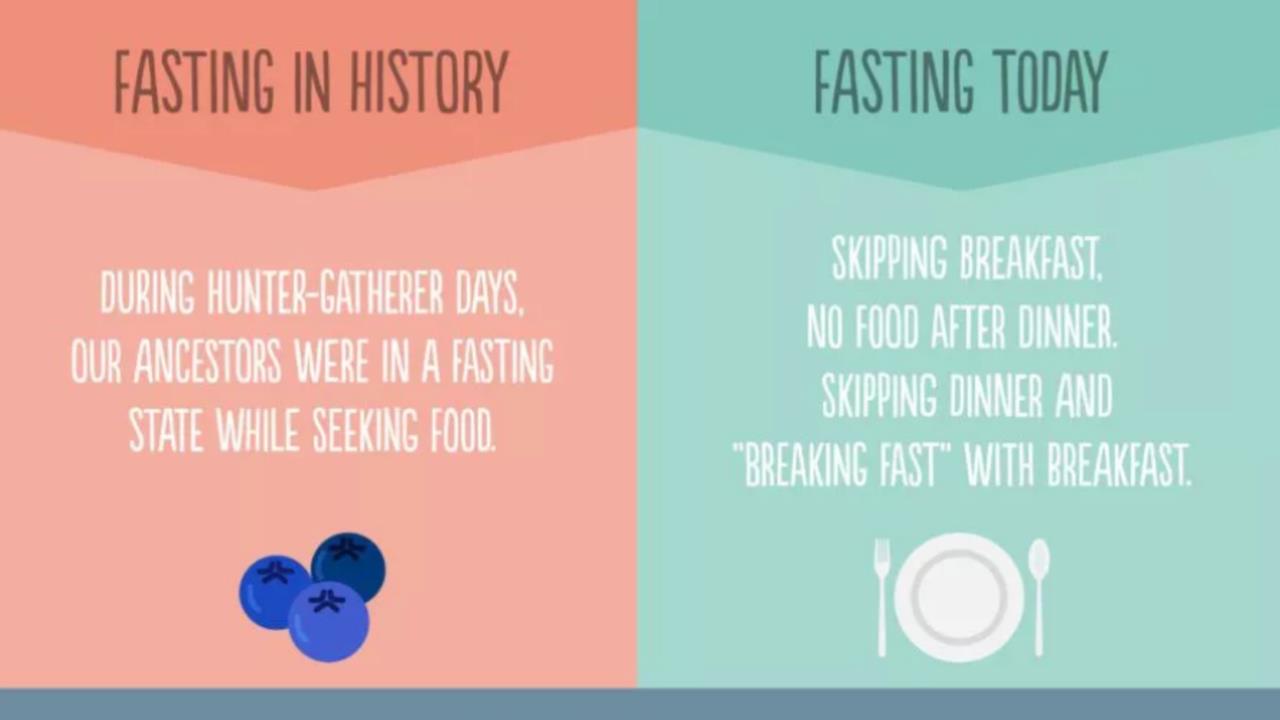 |
Is Skipping Breakfast Right For You?Skipping breakfast has a number of benefits, including the ability to lose weight, improve training performance, and increase growth hormone levels... |
 |
Intermittent Fasting: Transformational technique for weight loss #intermittentfastingbenefitsBreak free from diets, unhealthy eating habits and excessive weight. At Paleovsketo.com, we offer premium content to maximize your health lifestyle.. |
 |
Quick Weight Loss With Intermittent Fasting For Beginner's Ka REAL Formula Which No One TellsAt Paleovsketo.com, we bring you only the highest quality content on the lifestyle choices of Paleo, Keto, Mediterranean, and plant-based dieting,.. |
 |
7 Day Water Fast | NO FOOD ONLY WATERWelcome to Paleovsketo.com, the trusted source for up-to-date knowledge on lifestyle nutrition. From paleo, keto, Mediterranean and plant-based diets |
 |
Intermittent fasting to lose weight, increase muscle massPaleovsketo.com is a website devoted to providing premium content on the paleo diet, keto diet, intermittent fasting, weight loss, and eating healthy. |
 |
Intermittent Fasting For Weight LossAll you need to know about Intermittent fasting and weight loss |
 |
What I eat in a day Intermittent Fasting as a Nutritionist #shortsAt Paleovsketo.com, we strive to provide you with the latest, most up-to-date information on various health topics such as the paleo diet, keto diet.. |
 |
Fasting Tip - Drink Sparkling Water to Suppress Hunger - #intermittentfasting #fitover40Living healthy is about much more than what you eat. It's about finding a balance between body, mind, and spirit.At Paleovsketo, we believe this.. |
 |
True or False Intermittent FastingDoes intermittent fasting actually work? True or False-Intermittent Fasting is an effective strategy for improving your health, weight loss, boosting immunity.. |
 |
Warning! Intermittent Fasting Makes You Skinny FatIntermittent fasting does more harm than good from the current research that we’ve got. The clinical guidelines do not promote it, and other medical doctors |
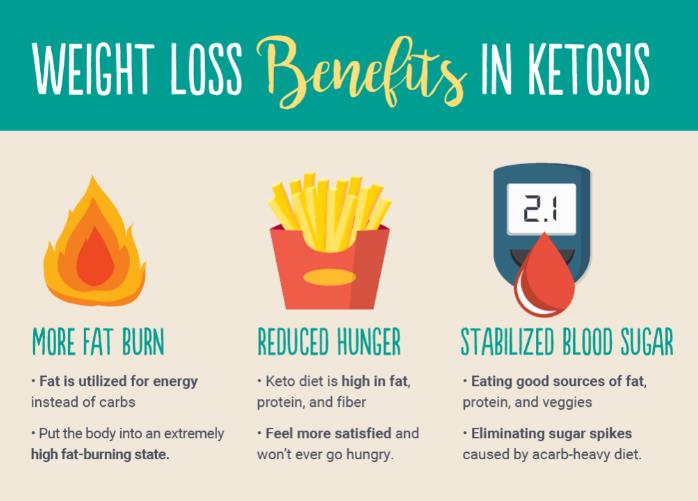 |
LIFE Fasting Tracker - LIFE Apps | LIVE and LEARNThe best, and free, intermittent fasting tracking app for iPhone and Android. Easy to use. Supports all fasting types. Fast with friends. Download for Free. |
 |
Warning! Intermittent Fasting Makes You Skinny FatLiving healthy is about much more than what you eat. It's about finding a balance between body, mind, and spirit.At Paleovsketo, we believe this.. |
 |
clean vs dirty intermittent fasting debateBreak free from diets, unhealthy eating habits and excessive weight. At Paleovsketo.com, we offer premium content to maximize your health lifestyle.. |
 |
1.9 Nutrition ABC's to improve your performance!Welcome to Paleovsketo.com, the trusted source for up-to-date knowledge on lifestyle nutrition. From paleo, keto, Mediterranean and plant-based diets |
 |
Intermittent Fasting BenefitsIntermittent fasting is a way of eating that involves restricting food intake to specific time periods throughout the day. It's becoming a popular.. |
 |
Intermittent Fasting: What is it, and how does it work?Intermittent fasting involves switching between fasting and eating on a regular schedule. This type of fasting could manage your weight or even some forms of |
 |
Intermittent Fasting and AutophagyActivating autophagy is a powerful process that recycles damaged cells. It helps maintain your health and can even help fight diseases. It is a.. |
 |
Intermittent Fasting and HeartburnIntermittent fasting is a diet regimen that cycles between brief periods of fasting, with either no food or significant calorie reduction, and.. |
 |
Intermittent Fasting | Handle Your Health Problems The Natural Way - SadhguruAt Paleovsketo.com, we understand that healthy eating can be a challenge. That’s why we strive to provide sound advice, recipes, and insight on the.. |
 |
Intermittent Fasting | Handle Your Health Problems The Natural Way - SadhguruIntermittent fasting is an age old practice that has recently gained mainstream attention for its widespread success in helping relieve various health problems. |
 |
Intermittent Fasting 101 — The Ultimate Beginner's GuideThis is a detailed guide to intermittent fasting (IF). Studies show that it can help you lose weight, improve health and perhaps even live longer. |
 |
Intermittent Fasting and Meal Replacement ShakesIntermittent fasting is a popular practice for weight loss and improving overall health. It involves restricting your eating schedule to certain.. |
 |
Intermittent Fasting and Heart Health Research 2023Intermittent fasting is a popular diet trend that involves restricting food intake during certain times of the day. It can include alternate day.. |
 |
Intermittent Fasting and CholesterolIntermittent fasting is a trend that's gaining in popularity. Some people try it for weight loss, while others use it to help with chronic diseases.. |
 |
Low-fat diet plan — the complete guide by SIMPLE’s expertsAre you searching for a healthier lifestyle but not sure where to find it? [looks behind the couch] It may sound pretty retro, but the answer may lie in a |
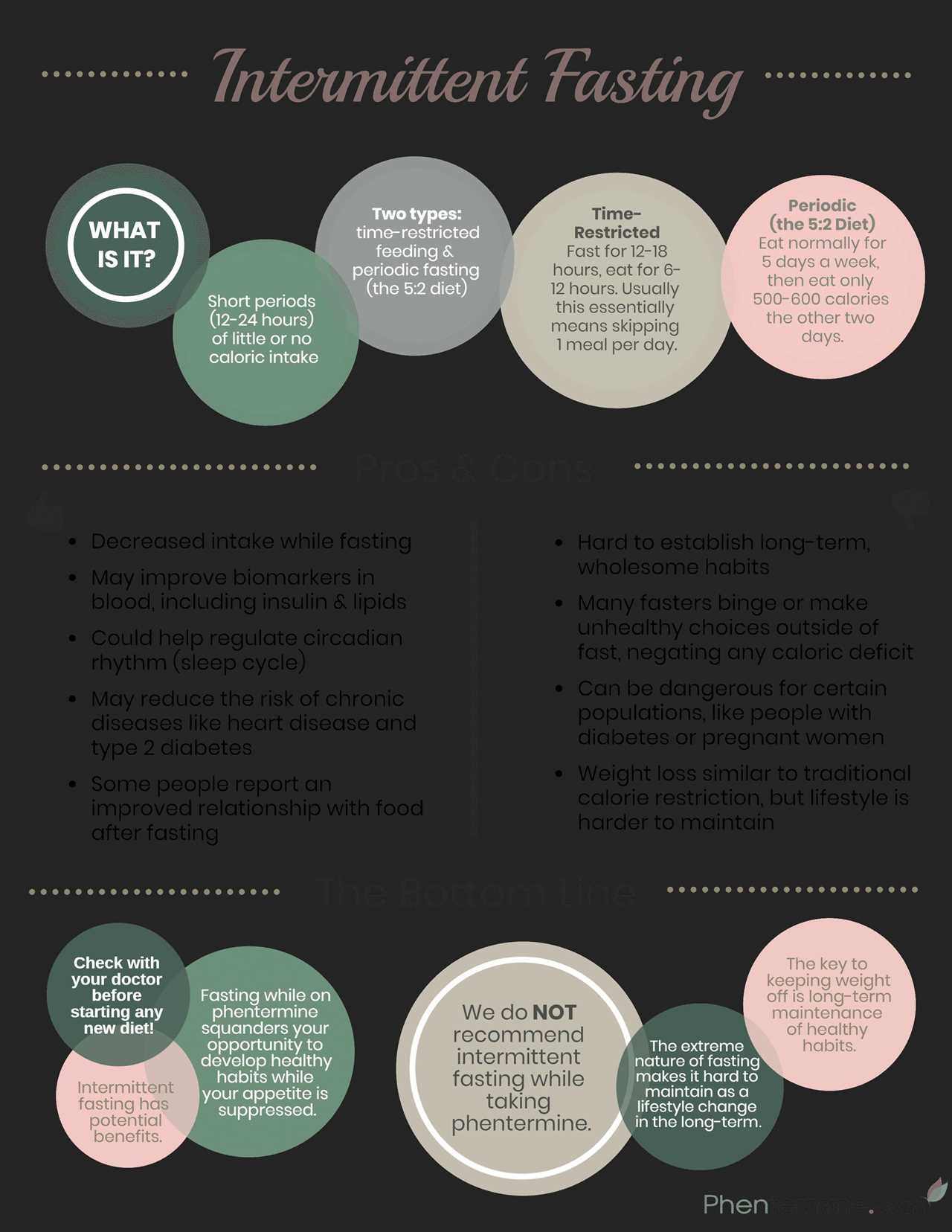 |
Is intermittent fasting good for you?Intermittent fasting isn't new, but it's gaining followers. What's the appeal? |
 |
16/8 intermittent fasting 7-day meal plan for beginnersIntermittent fasting (IF) can be super effective for losing weight and can have profound health benefits. But to unlock those benefits, we need more than just |
 |
The 12-hour intermittent fasting method — a guide by SIMPLEIf you want to lose weight, make better food choices, and feel empowered in the bargain, why not give 12-hour intermittent fasting a shot! Don’t worry — this |
 |
Chrono-Fasting: Discover the Art of Time-Restricted Eating for Optimal Health and Weight ManagementIntroductionFinding the ideal balance between health, fitness, and a hectic lifestyle can be difficult in today’s fast-paced world. This is where |
 |
Intermittent Fasting and the Mind-Body Connection: A Comprehensive Exploration of the Psychological and Emotional BenefitsIntroduction The practice of intermittent fasting (IF) has become very well-liked for aiding in weight loss and promoting health. Fewer people are aware of its |
 |
Intermittent fasting: The positive news continues - Harvard HealthHarvard research about Intermittent fasting ... |
 |
Intermittent Fasting for Athletes: Maximizing Performance, Recovery, and Overall HealthIntroduction Recent years have seen a significant increase in the acceptance of intermittent fasting (IF) as a viable strategy for promoting longevity, better |
 |
The Volumetrics diet — everything you need to know by SIMPLEIf you’re dieting but rarely feel full or satisfied with what you’re eating, it can feel like hunger is constantly on your tail as you try to lose weight. It’s |
 |
Intermittent Fasting and the Aging Process: A Deep Dive into Cellular Repair, Longevity, and Age-Related DiseasesIntroduction Recent years have seen a significant increase in interest in intermittent fasting (IF), a dietary strategy with many potential health advantages. |
 |
Combining Intermittent Fasting with Popular Diets: A Comprehensive Guide to Synergistic EffectsIntroduction The practice of intermittent fasting (IF) has become increasingly well-liked as a means of losing weight and enhancing health. IF involves |
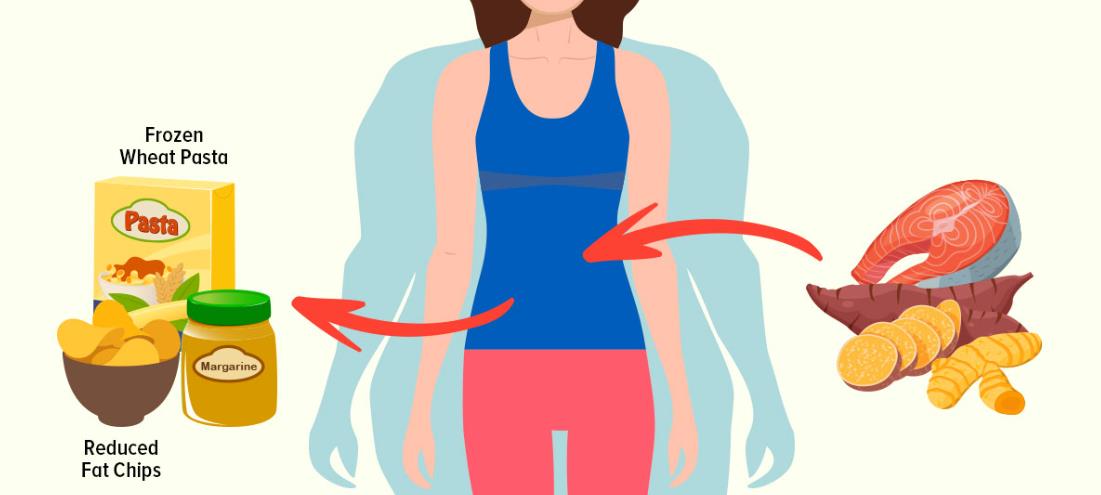 |
Six ways to do intermittent fasting: The best methodsIntermittent fasting is an increasingly popular diet option for weight loss. There are several programs, but this guide can help you find out which one is |
 |
Does lemon water break a fast? — explained by SIMPLEWhen you’re intermittent fasting, drinking plain old water can get pretty boring, pretty fast. As a human with taste buds, you naturally want to bring a |
 |
Top Intermittent Fasting AdvantagesThere are many advantages to intermittent fasting as a strategy for weight loss. Intermittent fasting can work with any diet... |
 |
Weight Loss (Low Carbohydrate Diets)Low carb diets have often been used throughout history for weight loss. Although sometimes called a fad, low carb diets have actually more science... |
 |
The Key Factors of Weight LossWeight gain and obesity, like any medical disease, is multifactorial. This means that there are many factors that cause weight gain... |
 |
Diet A to Z: Intermittent FastingThe two-day-a-week diet: How intermittent fasting can help you lose weight and boost your health. |
 |
How Doctors Lose WeightHow do doctors lose weight? For their patients, doctors often advise following standard diets, but when trying to lose weight themselves... |
 |
Vacation Weight Loss PlanWhat is the best vacation weight loss plan? Most people [...] |
 |
Rat Model: Intermittent Fasting Normalizes High Blood Pressure Induced by Harmful Intestinal BacteriaPrevious studies have shown that a harmful combination of gut bacteria can cause high blood pressure (hypertension) in humans and other animals. Having a |
 |
Your D-I-E-T Meditation PlaylistIn my TEDx talk, I suggest recasting the noxious word “diet” into D-I-E-T — a reminder to ask ourselves “Did I Enrich Today?” One of the ways we can enrich…The |
 |
Holiday Health (Damage Control)With the holidays on us, maybe your intermittent fasting schedule isn’t as rigorous as it once was. That’s not necessarily a bad thing, because social |
 |
You Got a Zero.Zero’s not been my hero. Through grade school and college, zeroes used to be something of a monster in my mind. Teachers illustrated just how bad a zero is |
 |
Intermittent Fasting ExperiencesI took part in an energetic discussion of intermittent fasting experiences as part of the release of Women Action Takers Who Gained By Losing for which I wrote |
 |
How to Break a Fast: What to Eat After FastingHow to Break a Fast: What to Eat After Fasting Written by Stephen Anton PhD on May 15th, 2022 How to break a fast? This is an excellent question and one |
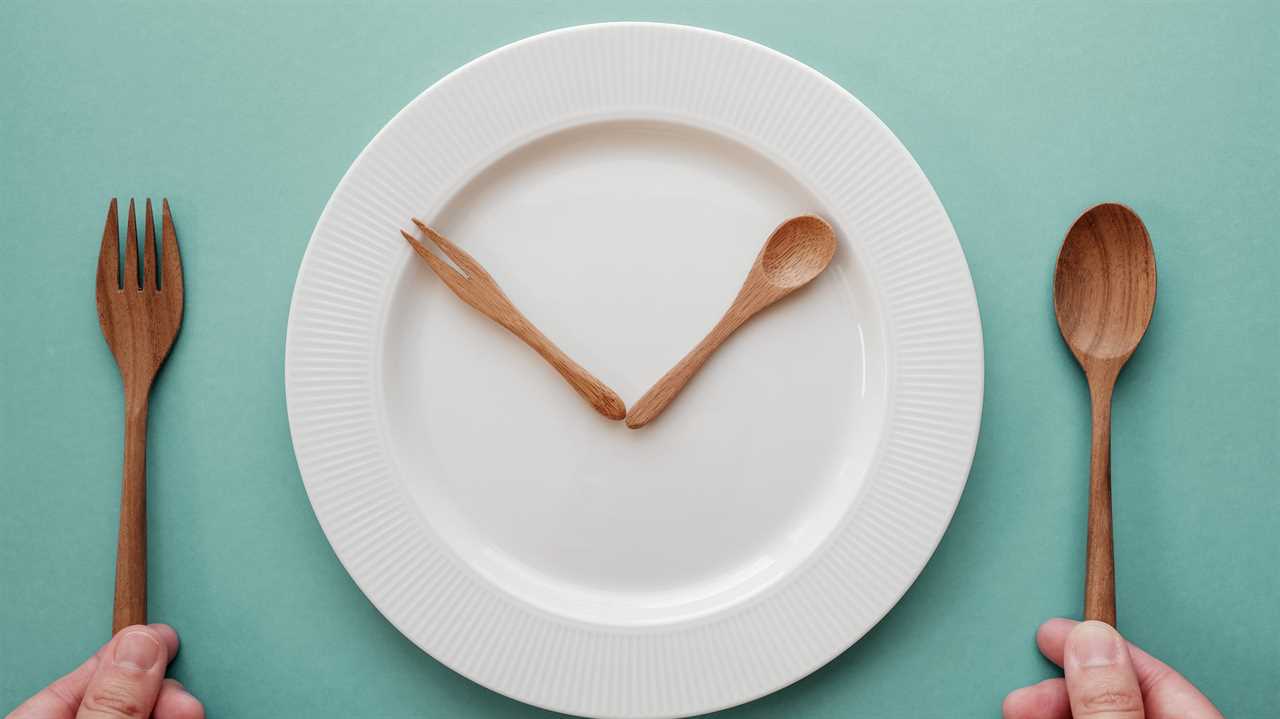 |
Intermittent fasting (IF): Your complete guide - Diet DoctorIntermittent fasting is popular, effective, and easy. This guide tells you how to get started with a successful intermittent fasting routine. |
 |
How to Believe in Yourself: 10 Tips for Becoming Your Best SelfHow to Believe in Yourself: 10 Tips for Becoming Your Best Self Guest Post by William Anton PhD on June 12th, 2022 William D. Anton, Ph.D is a renowned |
 |
36-Hour Fast (Monk Fast): Everything You Need to Know36-Hour Fast (Monk Fast): Everything You Need to Know Written by Stephen Anton PhD on July 5th, 2022 The 36-hour fast is a challenging fast in that it |
 |
18/6 Intermittent Fasting: Is It the Right Plan for You?18/6 Intermittent Fasting: Is It the Right Plan for You? Written by Stephen Anton PhD on November 29th, 2022 Intermittent fasting has become one of the |
 |
20/4 Intermittent Fasting: The Pros and Cons of a Longer Fast20/4 Intermittent Fasting: The Pros and Cons of a Longer Fast Written by Stephen Anton PhD on January 25th, 2023 There are so many different approaches to |
 |
5 Intermittent Fasting Methods, ReviewedIntermittent fasting comes in many shapes and forms. This article reviews its pros and cons so you can decide if it's worth a try. |

